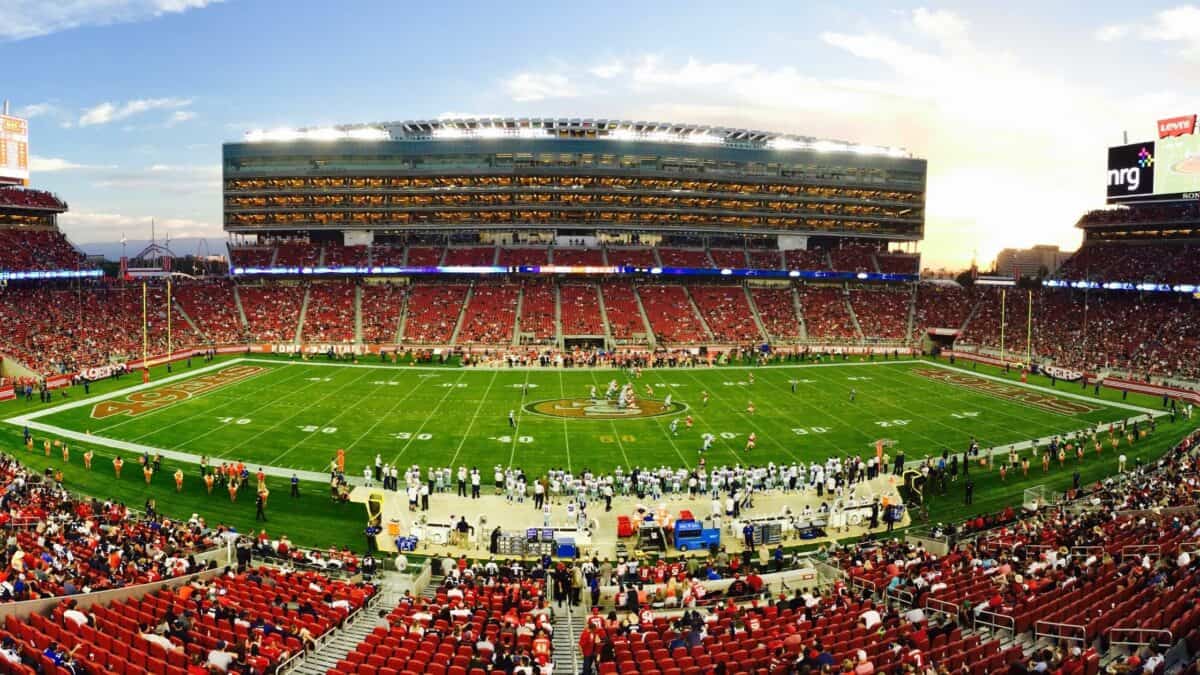For many, there is nothing more exciting than attending your favorite sporting events. From going to a game in a stadium or arena to having watch parties in fun social settings, these events involve active environments. Noise levels produced at sporting events can be challenging for hearing health. The noise in larger venues for sporting events often exceeds what is considered safe for hearing health. It is important to practice safety measures during a sporting event so you can fully enjoy yourself while also protecting your hearing health.
How Loud are Sporting Events?
It’s no surprise that sporting events are loud. But how loud can they get exactly? Well, sound is measured in decibels (dB) and sound that exceeds 85dB can be potentially hazardous for hearing health. This is equivalent to a hair dryer, busy city traffic, or vacuum cleaner. According to experts and hearing health specialists, people can be exposed to 85dB of sound for 8 hours a day without harming hearing. This highlights the threshold for safe listening, sound that exceeds this volume means that exposure time has to be limited.
The Occupational Health and Safety Administration (OHSA) recommends reducing exposure time by half for every 3dB increase of sound after 85dB. Their guidelines for safe listening include:
- 85dB: 8 hours
- 88dB: 4 hours
- 91dB: 2 hours
- 94dB: 30min
- 97dB: 15min
- 100dB: 7.5min
Noise levels at an average football game range between 80 to 90 decibels. But at peak times, noise levels can reach 108dB. In fact, the record for the loudest crowd in history was recorded at a whopping 137.6dB! When noise levels reach 100dB, the safe exposure time is only 7 minutes. This highlights how loud sporting events can get and the importance of protecting your hearing health from dangerous noise levels.
Impact of Loud Noise on Hearing Health
Loud noise can irreparably damage the auditory system – the sensory system for hearing. One time or consistent exposure to loud noise can damage the hair cells in the inner ear. The cochlea is filled with thousands of sensory cells which are essential to the auditory system and how we hear. These cells receive incoming soundwaves and convert them into electrical signals for the brain. Once converted, these signals get carried to the brain which then continues to process them and assign meaning to what we hear. This type of comprehension is what enables us to hear and understand what we hear.
Loud noise can cause sensory cells in the inner ear to become desensitized. This prevents their capacity to convert incoming sound waves and provides the brain with this critical support. The brain then receives less auditory input and overworks in trying to hear and understand speech as well as sound. Once these sensory cells are damaged, there are no ways to repair them. Unlike other types of cells, these cells do not regenerate as humans are born with all of the hair cells in the inner ear that we’ll ever have. There are also no medical treatments or interventions that can replenish these cells, resulting in permanent noise induced hearing loss.
Tips to Protect Ears During Sporting Events
The great news is that noise induced hearing loss is totally preventable. By pracitivn a few simple safety measures, you can effectively protect your hearing health. A few tips include:
- Wear hearing protection: there are various types of hearing protection including headphones, earmuffs, earplugs etc. This provides the ears with a physical barrier, reducing the amount of loud noise that is absorbed. Sporting events often sell hearing protection which are compact enough to carry and conveniently accessed when needed.
- Take breaks: depending on the type of sporting event, noise can reach levels that people can be exposed to for just a few minutes. Be sure to take breaks at your sporting event by going to the bathroom or quieter areas which gives your ears and brain a break from absorbing the excess noise.
- Get hearing tested: another great tip is to have your hearing tested regularly. Integrating a hearing test in annual health screenings is a great way to track your hearing health. This allows you to identify any changes or symptoms that need to be addressed.

